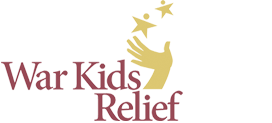In the U.S.-led effort to hunt down Taliban, many innocent civilians of Helmand Province, Afghanistan, have lost their lives and homes as collateral damage during the bombing and violence. As a result, thousands of families have fled the fighting in Helmand and are currently living in the Charahee Qambar IDP camp on the outskirts of Kabul—a place with no running water, electricity, health care or basic services. Unable to return to Helmand until the safety improves, the people here linger from day to day with little or no economic means to support their families. In December 2009, the Children’s Culture Connection/War Kids Relief team visited the camp and assessed that 70% of the children there suffer from pneumonia, including malnutrition and disease, with no way of receiving help due to their parents’ lack of income.
Due to economic hardship, these displaced Afghans are at high risk of recruitment by Taliban and other insurgencies, making this situation a matter of national security.
In response to the urgent need for medical care for the camp children, on December 1, 2009, CCC/War Kids Relief set up a six-week emergency fund. Money raised helped get medical care for 386 of the camp children and provided 150 sets of warm clothes, shoes and nutrition kits. (watch the video on CNN, December 2009)
Now that the immediate medical needs of the children have been taken care of, their parents need to be able to generate income in order to continue this care, and ultimately move out of the camp on their own.
Project Description:
With the help of Afghans4Tomorrow/A4T (www.afghans4tomorrow.com), War Kids Relief will set up a Briquette Production/Training Center at the Charahee Qambar IDP Camp that will train the people there to manufacture and sell fuel briquettes.
Six Americans will sponsor the first six Afghan trainees, as well as the startup cost of the center itself. A videographer in Kabul will film the whole process, as well as facilitate a back and forth communication between the sponsors and trainees. It is an opportunity for twelve inspirational people to come together and share their lives and stories, and build cross-cultural relationships (“bridges”) between Americans and Afghans.
Briquettes are an inexpensive, brick-like heat source for wood stoves made from everyday agricultural and commercial residues such as paper, weeds, leaves, sawdust, seed husks, and soil. They are a proven technology and have had an impact on lessening fuel wood use, and thus deforestation. The technology is simple, adaptable, requires no electricity, and the equipment in most cases is available locally.
A4T (www.afghans4tomorrow.com), is a U.S.-based nonprofit, non-political organization dedicated to the reconstruction and development of Afghanistan. They have spent years setting up and refining briquette production and have created a well-functioning, cost-efficient training system. Set-up takes two weeks. The training process takes six weeks.


